 Australia : Safety by City
Australia : Safety by City
Australia is a huge, fascinating country with a long and complex history.
For more than 65,000 years, Aboriginal and Torres Strait Islander peoples lived across the land, deeply connected to its landscapes and traditions.
When British settlers arrived in 1788, Australia started as a penal colony.
Since then, it’s become a vibrant, multicultural country known for its laid-back vibe and love of the outdoors.
The scenery is wildly different depending on where you go.
You’ve got Uluru’s red desert in the heart of the country, the dazzling coral of the Great Barrier Reef, and lush tropical rainforests up north.
The Outback, with its endless horizon, feels like another world.
Of course, there’s plenty of wildlife too—kangaroos, koalas, and crocodiles, the latter made famous by the movie Crocodile Dundee and figures like the late Steve Irwin.
Australians have also given the world legends like Hugh Jackman and Nicole Kidman.
Whether you’re heading for the Sydney Harbour, the beautiful beaches, or one of the many inland landscapes, it’s a place built for adventure, but you just need to be smart about it.
Warnings & Dangers in Australia

OVERALL RISK: LOW
Australia has a low overall risk for tourists. The country is safe and has a robust infrastructure, but visitors should still watch out for petty crime and natural hazards.

TRANSPORT & TAXIS RISK: LOW
The risk is low. Public transport and taxis are reliable and safe in most cities. Use official taxi services or rideshares like Uber. Renting a car is an option, but please do your research before driving in the Outback.

PICKPOCKETS RISK: LOW
The risk is low but increases in crowded tourist spots like Sydney's beaches or markets. Keep valuables secure in overcrowded areas and avoid leaving belongings unattended.

NATURAL DISASTERS RISK: MEDIUM
There is a medium risk of natural disasters, particularly cyclones (tropical storms/hurricanes) in the north (November to April) and bushfires in southern regions during the summer.

MUGGING RISK: LOW
The risk is very low outside the Northern Territory. Violent crime targeting tourists is rare, and mugging is uncommon even in major cities. However, it's always wise to avoid poorly lit or deserted areas late at night.

TERRORISM RISK: LOW
The risk is low, though Australia maintains an alert level due to global threats. Security measures are in place at airports and major events, but the likelihood of an attack is minimal. Stay aware of any government updates.

SCAMS RISK: LOW
While the risk is low, you should check the Scam Watch website provided by the Australian government. Sign up for the emails, too, so you know what to expect when you get there.

WOMEN TRAVELERS RISK: LOW
Australia has a low risk for women travelers. It's generally safe to travel solo, with good support networks for tourists. Basic precautions should still be used, including not going to a private place with strangers and sticking with groups in well-lit areas.

TAP WATER RISK: LOW
The risk is very low. Tap water is safe to drink across most of Australia, including major cities and towns. Plan to filter water or drink tap water in rural areas where water quality isn't always guaranteed.
Safest Places to Visit in Australia
Australia.com is the country’s official tourism website.
The most practice information is found under the Plan Your Trip heading.
The Budget Guide is particularly helpful for planning the best time to visit with the most value.
I’m going to break down the major things to see and do in Australia by state.
Western Australia (Perth)
If you’re into wide-open spaces and unique landscapes, Western Australia is your spot.
Perth is a laid-back city with great beaches like Cottesloe, perfect for a swim or sunset stroll.
You shouldn’t miss Kings Park—it’s huge and has amazing views of the city and the Swan River.
A short ferry ride away, Rottnest Island is where you’ll meet the famous quokkas.
Further out, the Margaret River region is known for wineries, surf spots, and caves.
For something truly different, check out the Pinnacles Desert or head north to Ningaloo Reef, where you can snorkel with whale sharks.
South Australia (Adelaide)
Adelaide is great for food and wine lovers.
Start with a visit to the Central Market, full of local produce and gourmet treats.
If wine is your thing, the Barossa Valley is less than an hour away and packed with wineries offering tastings.
Kangaroo Island is a must if you want to see native wildlife like seals and koalas in the wild.
For history and charm, head to Hahndorf in the Adelaide Hills.
If you’re up for a road trip, explore the Flinders Ranges for dramatic landscapes and Aboriginal rock art.
Queensland (Brisbane)
Brisbane is a good mix of urban and nature.
Stroll along the Brisbane Riverwalk or relax in the South Bank parklands.
North of the city, the Sunshine Coast offers chilled-out beaches and the Glass House Mountains for hiking.
The Gold Coast, just to the south, is the place for theme parks and some of Australia’s best surfing spots.
Dreamworld is the largest amusement park in the country.
The Great Barrier Reef is a major draw.
You can explore it from Cairns or Airlie Beach.
If you want something a bit offbeat, Fraser Island (K’gari), the world’s largest sand island, is perfect for four-wheel driving and scenic lakes.
New South Wales (Sydney)
Sydney has that iconic skyline, and seeing the Opera House and Harbour Bridge in person never gets old.
Spend a day at Bondi Beach, then take the coastal walk to Coogee for fantastic views.
The Royal Botanic Garden is a peaceful spot right near the harbor, and Darling Harbour has family-friendly attractions like the aquarium.
If you’re up for a day trip, the Blue Mountains are just a couple of hours away, with great hiking and scenic lookouts like the Three Sisters.
For wine tasting, Hunter Valley is nearby and offers some of the country’s best vintages.
If you’re planning a trip to Sydney for the iconic New Year’s Eve fireworks, book everything at least six months in advance.
For the most options, make that 12 months.
Places to Avoid in Australia
Yes, northern Australia, including Queensland and the Northern Territory, experiences a wet season from November to April.
This brings heavy rain, cyclones, and flooding, which can impact travel plans.
Additionally, dangerous jellyfish are common in coastal waters during this time.
For a smoother trip, visit these regions during the dry season, which lasts from May to October.
Speaking of the Northern Territory, the region has been plagued by crime since the early 2020s.
The rates reached a fever pitch between 2022 and 2024, specifically around cities like Alice Springs.
However, with new leadership in place, tourism officials believe it is once again safe to visit.
“There’s no doubt we’re seeing less crime, which is great, and we’re certainly seeing the physical police presence on the ground, and we’re certainly seeing a real noticeable difference in the mindset,” Tourism Central Australia chief executive officer Danial Rochford said in early 2025.
Even with the efforts being made, before you book a trip to the Northern Territory, look up the latest news reports.
Avoid underestimating the power of the sun here. Australia’s sun is harsher than most places due to the thin ozone layer, making UV levels extreme even on cloudy days.
Even if you’re used to the sun in places like Arizona, you’ll need stronger sunscreen and better protection to avoid serious burns or long-term skin damage.
*Northern Territory (Darwin)
*Please read the next section about crime and safety in the Northern Territory, particularly around Alice Springs.
For an adventure in Australia’s rugged Outback, the Northern Territory has a unique connection to Australia’s natural and cultural heritage.
Darwin, the capital, is laid-back and tropical, with outdoor markets like Mindil Beach and a buzzing waterfront precinct.
Nearby, Litchfield National Park offers waterfalls, swimming holes, and giant termite mounds.
For a deeper dive into nature, head to Kakadu National Park, where you’ll find ancient rock art, wetlands, and saltwater crocodiles (keep your distance!).
A trip to Uluru (Ayers Rock) and Kata Tjuta is unforgettable, with breathtaking desert landscapes and Indigenous cultural experiences.
Safety Tips for Traveling to Australia
- For emergencies, dial 000 to reach police, fire, or ambulance services. If you need non-urgent police assistance, dial 131 444. Each state has a police department with a website where you can get more information.
- Australia has a terrorism alert system. Check the Australian National Security website for details or call the Australian National Security Hotline at 61-1-800-123-400.
- Australia has a robust alert system for emergencies like bushfires, floods, and cyclones. Download apps like “Emergency+,” and keep an eye on local broadcasts for updates in high-risk areas.
- Australia’s beaches have strong rip currents. Always swim between the red and yellow flags on patrolled beaches. Jellyfish, including dangerous box jellyfish, can be an issue in northern waters, especially from November to May.
- Divers in northern Australia, especially around the Great Barrier Reef, should wear a stinger suit during stinger season (November to May). These suits protect against jellyfish stings, including deadly box jellyfish and Irukandji.
- Avoid feeding or approaching wild animals like kangaroos, crocodiles, and cassowaries. Crocodiles, especially in northern Australia, can be highly dangerous—heed all posted warnings near waterways.
- Northern Australia is prone to cyclones between November and April. Be aware of forecasts and evacuation plans if visiting during this period.
- If traveling long distances or through the Outback, be prepared for isolated conditions. Keep a spare tire, extra water, and fuel, and notify someone where you are going and when you plan to return. Pay extra attention to the roadside near dawn and dusk for wildlife crossing.
- Australian sunscreen is no joke—it’s made for serious sun. Wait until you get there to buy the special formulas for the intense sun. With SPF 30+ or 50+, it’s designed to handle harsh UV rays and protect against both UVA and UVB. It’s often water-resistant and non-greasy, plus many brands now use reef-safe ingredients.
- Worried about those massive spiders you’ve seen on social media? That’s a huntsman spider. You are most likely to see them in coastal and suburban areas of eastern Australia, including Sydney, Brisbane, and Melbourne. They’re not as common in arid central regions or cooler southern parts like Tasmania. Huntsman spiders are not poisonous to humans.
So... How Safe Is Australia Really?
The United States, Canada, and the United Kingdom all rank Australia at the lowest possible risk level.
That means there isn’t an overwhelming risk beyond basic personal safety measures.
You can always review the Australian Bureau of Statistics for some of the most recent crime data.
Each state and/or city will have an updated display as well.
Here’s some help pairing major cities with their respective states.
- Sydney – New South Wales
- Melbourne – Victoria
- Brisbane – Queensland
- Perth – Western Australia
- Adelaide – South Australia
- Hobart – Tasmania
- Canberra – Australian Capital Territory (ACT)
- Darwin – Northern Territory
- Cairns – Queensland (gateway to the Great Barrier Reef)
- Gold Coast – Queensland
Australia’s natural environment offers both beauty and risks.
In the wilderness, extreme heat and dehydration are major concerns, especially in remote areas like the Outback.
The country is also home to dangerous wildlife, including snakes, spiders, and marine creatures like box jellyfish and sharks.
With awareness and preparation, most risks can be minimized.
Common sense will go a long way toward enjoying your time in Australia, mate.
How Does Australia Compare?
| Country | Safety Index |
|---|---|
| Australia | 86 |
| Morocco | 54 |
| Slovenia | 87 |
| Japan | 83 |
| Ghana | 73 |
| Portugal | 57 |
| Slovakia | 80 |
| Greece | 73 |
| Norway | 85 |
Useful Information

Visas
Visas for Australia go through the Electronic Travel Authority (ETA). Check the Department of Home Affairs to get specific application information. A valid passport is also required.

Currency
Australia's official currency is the Australian dollar (AUD). The credit card system used in the country is EFTPOS, and you should check with your bank to see if it will work at those terminals. Currency exchange options are through international airports, banks, and many large hotels.

Weather
Australia's climate varies dramatically by region. The north has tropical weather, while the south experiences four seasons. Summers can be scorching in many areas, with temperatures surpassing 40°C (104°F). Coastal cities like Sydney enjoy milder climates, making year-round travel feasible depending on your destination.

Airports
Australia's main international gateways include Sydney, Melbourne, Brisbane, and Perth airports. Domestic travel is common due to the country’s vast size, with budget airlines offering frequent routes.

Travel Insurance
Travel insurance is highly recommended in Australia. Medical care can be expensive, especially for international visitors. Policies should cover health emergencies, trip cancellations, and baggage loss or theft. For outdoor activities like surfing or hiking, consider adventure insurance for an additional layer of coverage.
Australia Weather Averages (Temperatures)
Average High/Low Temperature
| Temperature / Month | Jan | Feb | Mar | Apr | May | Jun | Jul | Aug | Sep | Oct | Nov | Dec |
|---|---|---|---|---|---|---|---|---|---|---|---|---|
| High °C | 30 | 30 | 28 | 25 | 22 | 19 | 18 | 20 | 23 | 26 | 28 | 30 |
| Low °C | 22 | 22 | 20 | 17 | 13 | 10 | 9 | 10 | 13 | 16 | 18 | 21 |
| High °F | 86 | 86 | 82 | 77 | 72 | 66 | 64 | 68 | 73 | 79 | 82 | 86 |
| Low °F | 72 | 72 | 68 | 63 | 55 | 50 | 48 | 50 | 55 | 61 | 64 | 70 |
Australia - Safety by City
| City | Safety Index |
|---|---|
| Adelaide | 88 |
| Brisbane | 90 |
| Cairns | 61 |
| Canberra | 88 |
| Darwin | 70 |
| Gold Coast | 69 |
| Hobart | 90 |
| Melbourne | 80 |
| Perth | 85 |
| Sydney | 80 |
| Townsville | 77 |
| Wollongong | 55 |
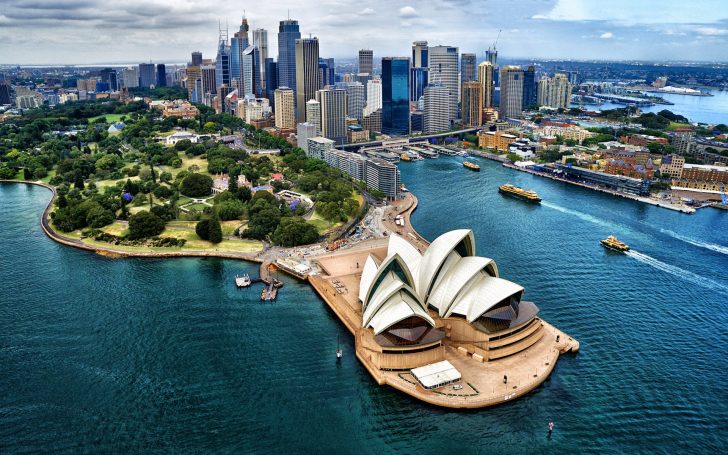
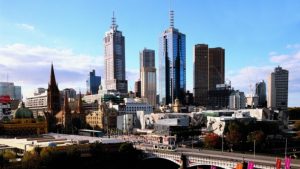
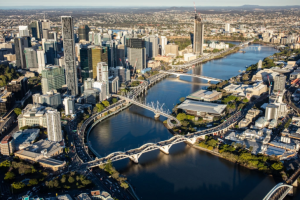
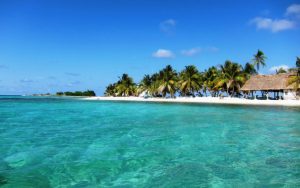
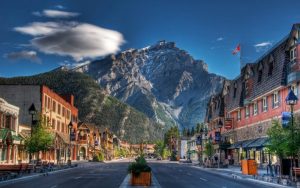
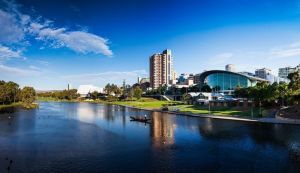
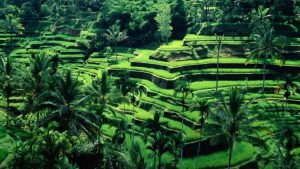





Australia a safe "nanny" state
Avoid travelling on country roads at night and especially at dusk and dawn, even close to major towns and cities due to wildlife on the roads. I do not agree with lack of safety on roads, especially drunk or drugged drivers as this is strictly patrolled with Random Breath Testing and drug testing with heavy penalties. Australia has major distortions, mainly lack of public transport and rail transport for goods and passengers, recreational motorcyclists being responsible for 40% of the death and injury stats, very high vehicle ownership and mileage travelled, and remote areas have 3 times the rates of MVAs.
As an Australian resident, I think you need to update this article. Down ‘south’ we are in the midst of a heatwave with a record number of days of 40+ temperatures. I regularly bushwalk and in all my 56 years I have only ever seen a snake out of captivity about three times. The only wild animals that may appear in front of your car is a kangaroo, and yes, this occurs at dusk. I have never yet hit one but roadkill is a regular sight. Temperatures vary greatly so really do your research in terms of when and where you are travelling and bring appropriate clothing.
Be cautious of animals
Sorry but I must say this hasn’t been my experience. I live in Brisbane and have travelled between here, Darwin, Sydney and Broken Hill areas. Animals that I encountered infront of my car – kangaroos, wild goats and pigs, domestic camels, emus and the odd domestic cow.
I live near a creek and regularly encounter red bellies. On my rural property there are eastern browns ive seen a few times. Though they’re not nearly as aggressive as many would believe!
Safest humans on the planet, but bewarned of the nature!
Australia is the safest country I have lived in as far as the people go. People (for the most part) are extremely generous and friendly. Australia is probably safer than where you live now, with crime rates as low, if not lower (per 100,000) than Northern Europe. Even Iceland has a higher murder rate (per 100,000) than Australia, so rest assured you are very unlikely to come across any issues.
The nature and climate on the other hand… That’s another story. Driving at night out of the city and on gravel requires experience and skills most European drivers just won’t have. Animals often meet there doom on the roads, and many of our roads are not paved, remote, and with 0 reception.
Animal deaths are almost non-existent with close to 2 deaths from snake per year, however with diligence and precautions such as compression bandages you will be safe. Our sun is super strong, so protection is required always.
More than anything don’t take risks alone!!! Whilst the Australian health system is on of the most advanced on the planet, the remoteness of our barren country is what will get you in the end, so do your research in areas and take notice.
Or just ask an Australian and they will happily tell you 🙂
Nice people. Boring landscapes.
Been to Australia with a 6 months visa. The landscape is super boring. So, if you don’t like the ocean and beaches (which are great) Australia will probably bore you to death. All just brushland, eucalyptus and nuclear wasteland.
Concerning the Australian people…..they are nice and friendly and everything but environmentalism isn’t their strength. In the suburbs of Brisbane (although all of Brisbane seems like a huge suburb) people pump the drain water from their dish washers and washing machines right into their own garden. No connection to the sewage or whatsoever!!!! Third world mentality in a first world country.
Third world country? Fair go!!
You have to be joking! Brisbane people made those arrangements in the midst of a terrible drought. Many families used bath water to flush toilets, too. When I came back to America, after being back home during that period, I did the same thing for several months.
Boring landscape? Australia is the 6th largest country in the world, and has almost every type of landscape and climate on it somewhere, from snow capped mountain ski resorts to red sandy deserts, cool temperate rolling hills, Mediterranean climates with vineyards and olive groves, to tropical rainforests.
As far as environmentalism and the water re-use – did it ever occur to you that it was actually a MORE environmentally conscious choice people made? Look up grey water re-use or recycling. It’s not that there wasn’t a sewage connection, it’s that the decision was made to use that water to irrigate gardens instead of wasting it.
Go...or don't.
I cycled solo from Perth to Ceduna a few years ago. The people were great to this Yank, and some seemed apologetic about the lack of scenery. Around Perth, and east to Northam is very scenic, in my opinion. But I was also fascinated by the landscape and small towns as I traveled east, as well. I camped at Fraser Range Station and took their bus tour through the place, saw kangaroos by the thousands, watched a beautiful sunset from atop a hill, and slept under a sky where you could actually see the stars – which was repeated night after night on my trip, camping alone in the bush. As I rode along, the birds constantly calling out (they make some odd noises) kept me company. If you’re sure that you don’t like the desert and isolation, aren’t adventurous, or are normally a malcontent, depressed, whatever – don’t go.
I encountered lots of snakes and lizards – all dead on the highway (along with many dead kangaroos). I saw one live snake up ahead on the pavement, but he was long gone before I caught up. One night after I set up my tent, I saw a spider attached to the netting on the outside, and when I slept in a room at a roadhouse one night a huge spider ran from beneath the bed, which startled me for a while but I got over it.
Australia is wonderful. On average the people are wonderful, too.
Incredible feat!
You cycled from Perth to Ceduna? That’s amazing!
Intelligent Water Usage
It’s known as Grey Water Recycling. It’s a choice that many Australians make to improve their water consumption. How much water is used in a typical load of laundry? Attaching a hose to the back of the machine and sending into the garden instead of down the drain is a great way to reduce water use for the house, less need to water the plants/lawn. In a country with droughts it is actually very intelligent, not a ‘Third world mentality’.
I’m an Australian who has lived in Los Angeles since 2015. I’m constantly surprised at the lack of water conservation in this dry desert city.
We actually use our dish water and washing water very wisely, Water is a very precious commodity in our country, and shortages are common, so using waste water on gardens is helping the environment, rather than wasting it in the sewer.
And BTW of course we have sewers, and appliances are connected, we just choose to divert it for the environment.
You must come from a wet country where water is not a precious thing.
Australia can be drought prone
I don’t live in Brisbane but I imagine the dish water onto the garden is due Australia’s great need to conserve water with the ever present risk of drought. As long as detergents used in washing are environmentally friendly, it’s a really good idea. It’s referred to as grey water. Sewage is for toilet water and of course exists. In some more rural areas there would be septic tanks for sewage treatment
Literally never seen anyone dump drain water into the garden… it is all plumbed.
About Detergent Water....
The water dumping is by people using low alkaloid ecologically safe detergent and it the rinse water, it is recommended to do this in Australia. Sewage water or the detergent cycle goes down the drain like all other advanced nations.
best country ever
Australia is the best country ever I have been here my whole life. we have got good universities, good public transport and a wide range of climates to suit all types of holidays. the locals are very nice. even though you would have heard that Australia has lots of deadly snakes that is true but I have only seen 1 in the wild and I have lived in the country most of my life.
I live in suburban Brisbane and go for walks at dusk daily and regularly see snakes (usually average about 4 a week during the warmer half of the year) on the walking tracks. Its extremely rare to see a poisonous one but they should still be avoided as their bite is painful.
its good
Swim between the flags.
Sadly, many local and visiting people drown in Australian waters every year. Australia’s surf beaches are particularly dangerous. Unless you are a very strong swimmer, do not swim at Australian surf beaches unless it is patrolled by lifeguards. Otherwise, enjoy your stay in Australia and don’t worry about all the stories regarding dangerous critters, it’s a myth.
An Absolutely Wonderful Country!
I was born in Australia and having lived here for three decades, I can guarantee you it is a wonderful country. Because of the well trained and efficient police force, there is no need to fear for your safety. Just act normally as you are walking down the streets and if the cops notice you, smile and keep walking to your destination. Your stay in this country is sure to be a pleasant one. Trust me, mate! Australia definitely deserves a safety index of more than 86! Cheers to all Australians.
A Safe Haven.
Australia is a very safe country to visit, study, work and live in. You can be assured of your safety, day or night. The people here are friendly and helpful. I have lived here for 11 years and have not encountered any problems with my personal safety and security. Law enforcement is at a high level, so you can always count on the boys in blue to keep you safe.
It's ok if you're White
Aussies are quite racist.. on several occasions o have witnessed terrible behaviour toward foreigners of darker skin. This has ruined my view of this country.. most Australians I asked agreed.
Bloody wogs eh ?
Which Aussies are you talking about. We are one of the most diverse country’s in the world. Just because I call my Italian mate a wog doesn’t mean I’m racist. I think a lot of what we say and our slang is misinterpreted as racist.
Seriously….
Quite racist, you are kidding right. There will always be some racists. I’ve travelled through many countries, the US being one. I witnessed hate towards blacks, Asian’s and Latinos, yet I would never make a comment…yanks are racists
Very accepting
That’s strange. I’ve lived all over this country for over 45 years and am married to an Aboriginal woman. Australia’s so multicultural that we accept anyone- Asian, Arabic, African, Polynesian… I’ve witnessed very little racism and trust me, I’m in the circles where I would see it. I’ve lived rural, in Arabic suburbs and Asian to name a few. As a rule, we’re extremely tolerant. I’m truly sorry you happened to catch an exception to the rule. I agree with a lot of the other comments in that there is a bit of fearmongering going on about the natural hazards. They’re nowhere near as dangerous as described. Just be sensible, especially on the beach and it’ll be fine.
Silly and false generalisation
Jason, you need a thorough education. Australia is NOT a racist nation; unlike the USA we have NEVER had a Klu Klux Klan or other aggressive white supremacist groups so often seen in America! Yes, there are individual racists in our nation of every colour, but Australia remains one of the most tolerant, diverse and multicultural nations on the planet! Have you even BEEN to Australia? Your ignorant attack on our country shows a complete lack of understanding of our cultural diversity and widely known tolerance of other cultures and religions! Our country has strict laws in relation to racial discrimination and a huge sense of social justice. Furthermore, the huge majority of Australians are more than prepared to call out racial discrimination and injustice wherever they see it!
Fantastic!
I love this country and I am only too happy to be Australian. It’s fantastic!
It's safer than you think.
A racist country? What nonsense! Like the others have said it’s a wonderful country, very safe and the people are friendly. As long as you don’t try anything stupid no one will bother you and you’ll be fine. Please come down to Australia when COVID-19 is over!
Is Australia safe in terms of crime, yes, very much, you can roam around freely without issues.
But I don’t need to get started on it’s climate and animals…
A tolerant country.
I find it interesting when Americans call Australia a racist country.
The same America where so recently , people were run down in the street in Charlottesville. By a far right supporter. A country where there are always race tensions.
I’ve lived , known & worked with people from every corner of the globe in Australia. Like most Australians, got on well with all of them.
Not saying that Australia doesn’t have its problems & couldn’t be even better in many ways. Still, so could most countries in the world. Australian’s are a tolerant, giving & kind people.
OMG I know right. They (Americans) just have it out for other countries that aren’t their own.
Meh
The country is drowned in drugs, especially meth. Any town with more than 10% of Aborigines is plain dangerous: Broome, Alice Springs, Tenant Creek, etc.
Everything is overpriced; accommodation, airfares, food, etc.
Locals are shallow, fake, judgemental and racist, particularly outside metro areas.
You sound like a horrid person! Australians treat people as they find them! If you come into our nation with a big chip on your shoulder, you won’t be welcomed. Don’t come back, we won’t miss you!
.
(Aborigines) this word is considered a slur in Australia please consider this in future.
Disclaimer for autistic travellers
I am a proud Australian citizen in Victoria and I would rate Australia 5 stars, but 90% of the population has very little knowledge on the autism spectrum.
Are roads going from Brisbane to Coffs Harbour safe? Is it paved or dirt? Is it two lanes or four? Will there be alot of wild animals along that route? Are poisonous spiders in doors like at the resorts? Are women safe traveling alone on that roads?
Reply to question
Brisbane to Coffs is an easy drive down a highway. Perfect roads, can be busy at times.
You wont see a lot of wildlife along the highway. But once in Coffs you can do day trips inland a bit and you will see Kangaroos until you are sick of them 🤣Koalas a very hard to spot. Without a ranger, you probably wont see any. Australia is a very safe country for women to travel alone. To put it delicately, there can be some concerns from “new Australians” who come from from regions that are not so safe for females. But even then, those people are in the minority. I am currently in Tweed Heads which is exactly halfway along the trip to Coffs. The weather is perfect and the people very friendly and trustworthy.
Love Love Love Australia
Australia is the safest country in the entire world.